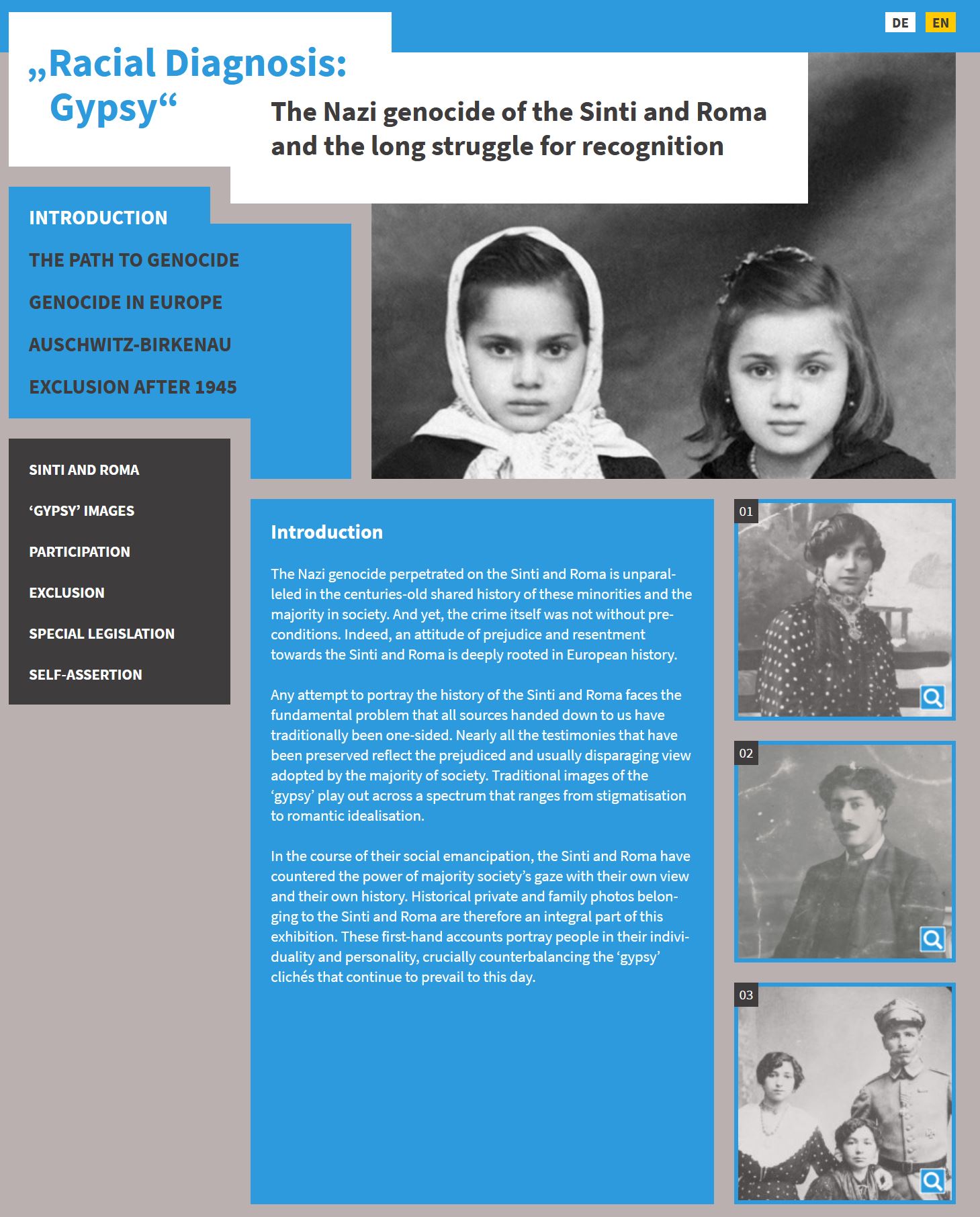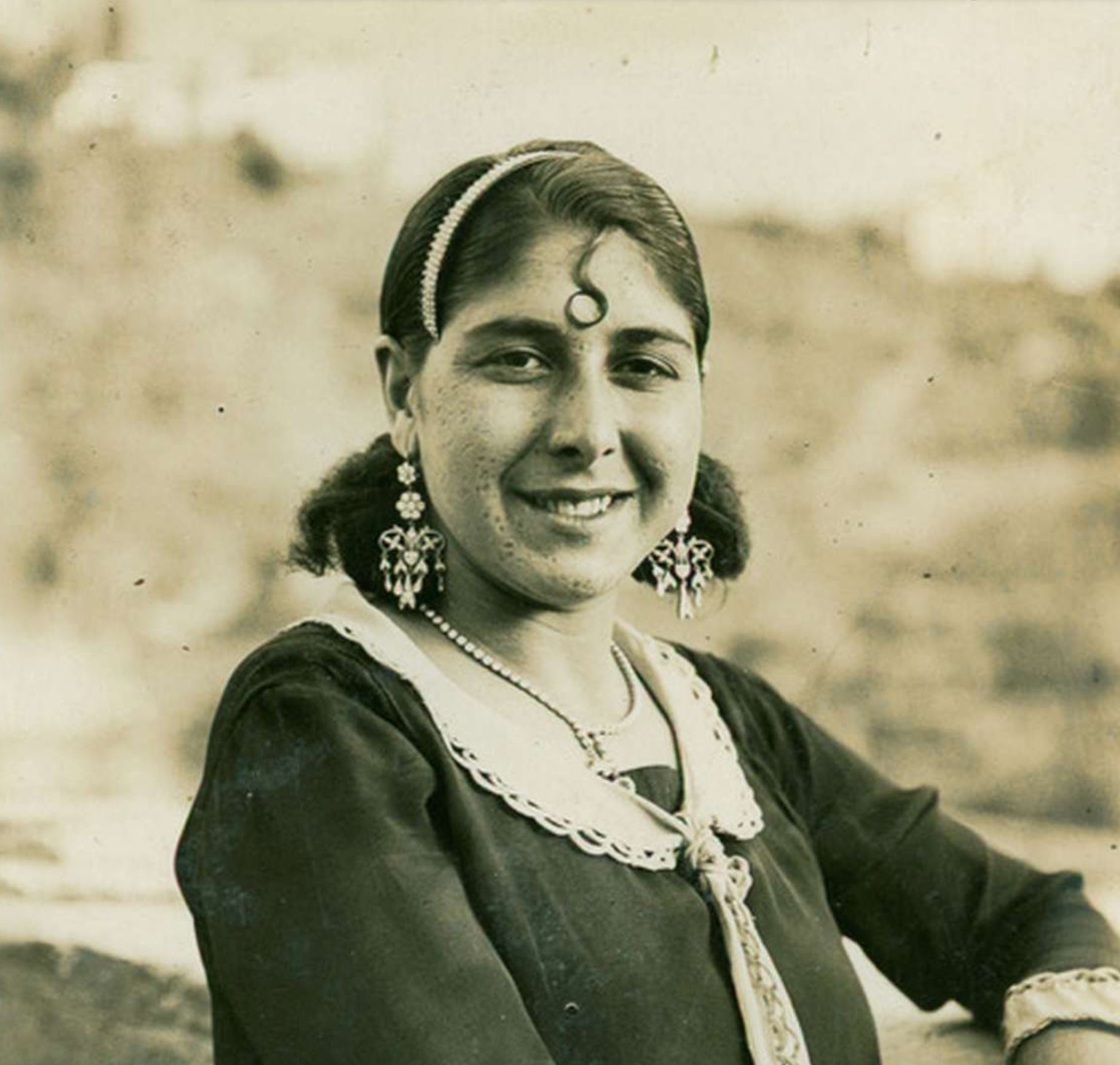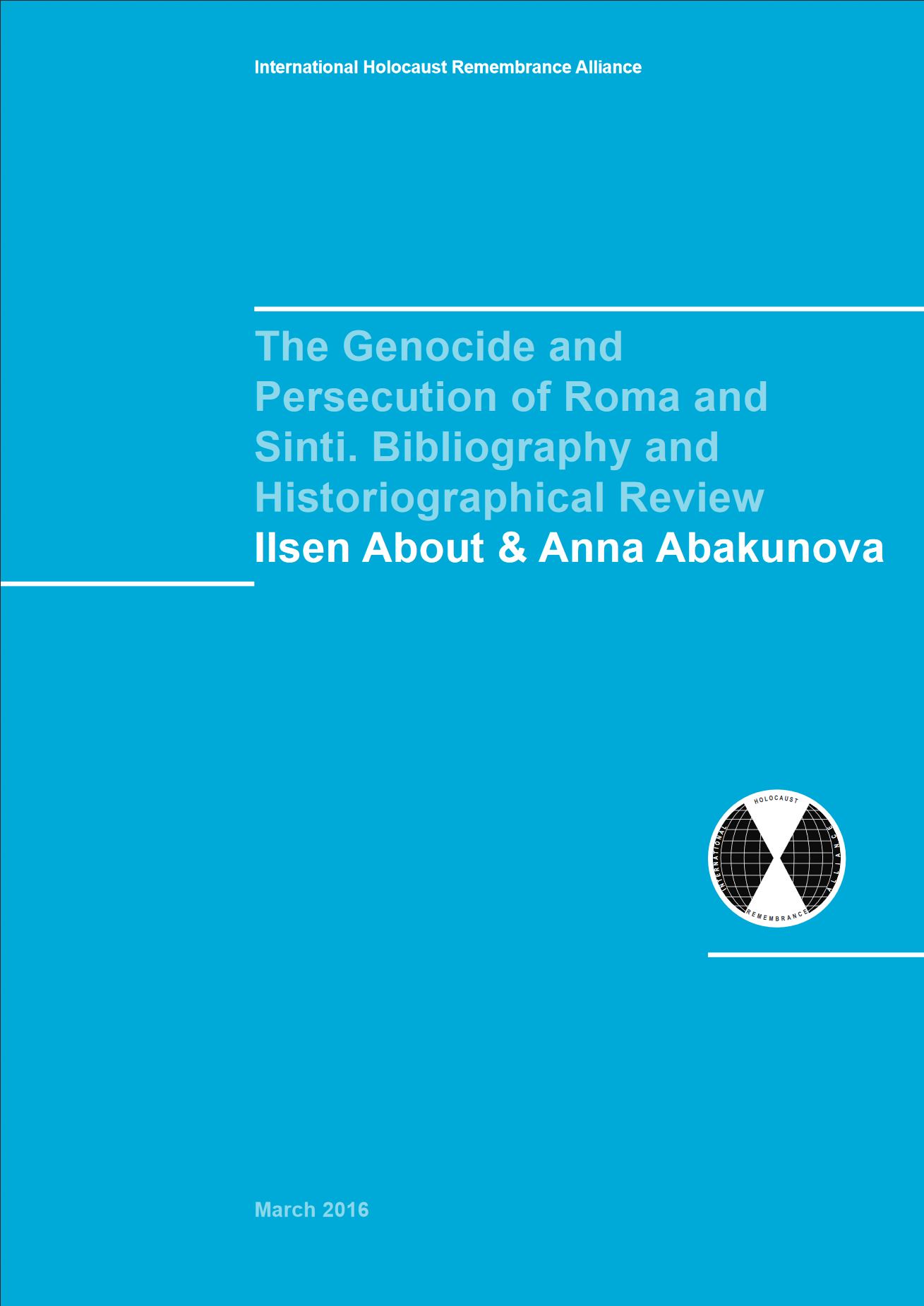RomArchive
Digital archive for Romani arts and culture
RomArchive is a digital archive for Romani arts and cultures. It comprises more than 5,000 cultural contributions from all genres, which were meant to be destroyed in the Holocaust, covering several centuries and originating from various home countries. Along with contemporary documents and scholarly appraisals, they are archived and open to the public.
As an internationally accessible space that renders Romani cultures and histories visible, RomArchive is responding both to the ascriptions perennially imposed by others and to entrenched stereotypes by providing counter-narratives told by Roma themselves. RomArchive sees itself as a continuously growing platform that presents collections with representative contents. In addition to the published materials, RomArchive maintains an Internal Archive containing further media, including texts and images.
An international team of fourteen curators was responsible for planning the form and contents of the ten individual Archive sections: Visual Arts, Film, Literature, Muzyka, Dance, Theatre and Drama as well as for the interdisciplinary Flamenco section. There are also archive sections devoted to the thematic issues Politics of Photography and the Roma Civil Rights Movement as well as the ‘Voices of the Victims’, which presents the testimonies of Sinti and Roma who were persecuted during the Nazi era. An international advisory board supported and advised the curators and set out the strategic guidelines for the project. This included developing the Ethical Guidelines and the collection policy as well as deciding which organisation will take over responsibility for the project. The advisory board is made up of artists, scholars and activists as well as representatives from international Roma organisations which are active in art, culture and academic disciplines. The curatorial teams and advisory board are predominately made up of Roma.
The individuals involved in the project – including the assorted working groups this amounts to some 150 people from fifteen countries across Europe and beyond – form a global network of cultural practitioners and artists, scholars, theorists and activists, most of whom come from a Roma background.
RomArchive went online in January 2019. In March 2019, the Documentation and Cultural Centre of German Sinti and Roma took over the sponsorship.
RomArchive is awarded the Grand Prix of the prestigious European Heritage Awards / Europa Nostra Awards 2019 for its outstanding work of the digitisation of art and culture of Sinti and Roma. Additionally, it is winner of the Grimme Online Award 2020.
Holokaust Sinti i Romów

Sintiundroma.org
Online portal about the Holocaust of the Sinti and Roma

RomArchive
Digital archive for Romani arts and culture

Annotated bibliography of the genocide of the Sinti and Roma
A project by the IHRA Committee on the Genocide of the Roma










